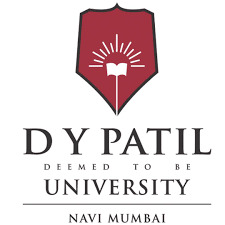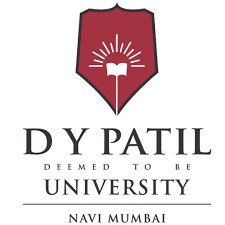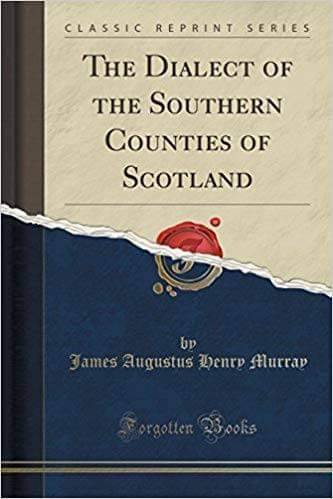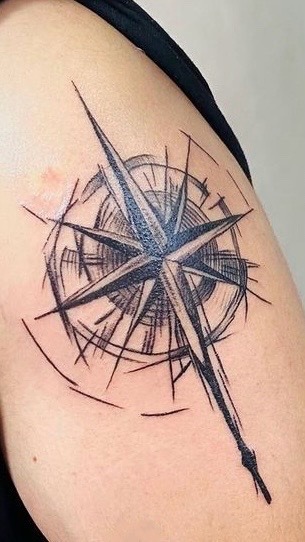#BA in German language
Explore tagged Tumblr posts
Text
Exploring Various Bachelor's Degrees in Foreign Languages

In today's globalized world, proficiency in foreign languages is a significant asset. Whether it's for cultural understanding, travel, or career advancement, mastering a new language can open doors to countless opportunities. Among the most sought-after languages are German, Spanish and Chinese. Pursuing a Bachelor's degree in these languages not only equips students with linguistic skills but also immerses them in the rich cultural tapestries of these nations.
The Value of a BA in German Language
A Bachelor of Arts (BA) in German Language is an excellent choice for students interested in exploring Germany's influential culture, history and economic prowess. Germany is known for its contributions to literature, philosophy and the sciences, making it a fascinating subject of study. A BA in German typically covers comprehensive language training, literature studies and insights into Germany's role in the European Union and global affairs.
Career Prospects:
Graduates with a BA in German Language can pursue careers in international business, translation, diplomacy and education. Germany's strong economy and its position as a leading exporter make German language skills highly valuable in global trade and commerce.
The Advantages of a Bachelor's Degree in Spanish
Spanish is one of the most widely spoken languages in the world, with over 460 million native speakers. A Bachelor's degree in Spanish offers students an in-depth understanding of the language, as well as the diverse cultures and histories of Spanish-speaking countries.
Cultural Immersion:
Programs typically include studies of Spanish literature, history and art. Students often have opportunities to study abroad in Spanish-speaking countries, enhancing their linguistic proficiency and cultural awareness.
Career Opportunities:
Fluency in Spanish opens doors to careers in international relations, tourism, media and education. The growing Hispanic population in many countries also increases the demand for Spanish language skills in various sectors, including healthcare and social services.
The Significance of a BA in Chinese
China's rising global influence makes the Chinese language an invaluable asset. A BA in Chinese provides students with comprehensive training in Mandarin, the most spoken language in the world. This degree often includes studies of Chinese history, literature and contemporary society.
Economic Importance:
China is a major player in international trade and business. Proficiency in Chinese is particularly beneficial for careers in international business, diplomacy and trade. Understanding Chinese culture and language is crucial for navigating and succeeding in the complex Chinese market.
Educational Enrichment:
Studying Chinese also allows students to engage with China's rich cultural heritage, from ancient philosophies and historical texts to modern literature and cinema. Many programs offer exchange opportunities, enabling students to experience China's vibrant culture firsthand.
Why Choose D.Y. Patil University (DYPU) for Your Language Degree
When it comes to pursuing a BA in German, Spanish, or Chinese, D.Y. Patil University (DYPU) stands out as a premier institution. DYPU offers robust programs in foreign languages that combine linguistic proficiency with cultural immersion. Here’s why DYPU is an excellent choice:
Expert Faculty:
DYPU's faculty members are seasoned educators and experts in their respective fields, providing high-quality education and personalized mentorship.
Global Opportunities:
The university foster's international collaborations and offers exchange programs with prestigious institutions worldwide. This ensures that students gain real-world experience and a global perspective.
State-of-the-Art Campus:
Located in Mumbai, DYPU boasts a modern campus with advanced facilities, creating an ideal learning environment.
Comprehensive Curriculum:
DYPU’s curriculum is designed to provide a holistic education, blending language studies with cultural, historical and contemporary insights.
Placement Success:
DYPU graduates are well-prepared for diverse career paths, thanks to the university’s strong industry connections and emphasis on practical skills.
Embark on a journey of linguistic and cultural discovery with a BA in German, Spanish, or Chinese at DYPU. Equip yourself with the skills and knowledge needed to thrive in an interconnected world.
By choosing DYPU, you're not just earning a degree; you're opening doors to a future filled with endless possibilities.
#BA in German language#Bachelor’s degree in Spanish#BA in Chinese#dypu university navi mumbai#dy patil university navi mumbai#dypu navi mumbai
0 notes
Text

NOOOOO
#in this case that makes seb and lewis an isko because fuck the cars in a2 amirite#piarles as atenistas and sewis as iskolar ng bayan 😭😭#nainvest ako bigla sa au na to HAHA uhm#pierre as a SOM kid (probably management engineering)#charles is a SOH kiddie probably bfa art management or theater arts#seb is a CAL girlie like me (ba european languages major in german minor in teaching in the early grades)#lewis ang babyboy ng CSSP na nagshift to CDSW para itake bs community dev
11 notes
·
View notes
Text
just rewatched the "you like the stars?" "i like you" scene and hngggggggggggg
#MAYBE DECIDING TO PUT THIS MOMENT INTO MY THESIS WAS A BAD IDEA A REALLY REALLY BAD IDEA#TOO SOON T O O S O O N#HOW CAN I WRITE ANY COHERENT AND ACADEMIC SENTENCES WHEN I'M THIS EMO#SEND HELP PLS#airenyah vs her ba thesis#airenyah plappert#our skyy 2#os2: aofverse#os2: aofverse ep1#adrm#os2: bbs#also how the fuck do you say ''reminisce'' in german#you know you have a problem when you can't speak you own native language anymore
4 notes
·
View notes
Text
so the thing about english is that people think it's so divorced from other germanic languages based on like. words. I've even heard people try to insist that english is a romance language. because of that whole messy business in 1066 with out-of-wedlock willy and his band of naughty normans. and now a good chunk of the vocabulary is french or whatever and they're prestigious so not using them makes you sound like a rube and this and that and the other
and yes william the conqueror will never be safe from me. I will have my revenge on him. he fucked up a perfectly good germanic language is what he did. this will be me in hell

but the thing is that most words in, say, german do have a one to one english equivalent. not all hope is lost, for those who still dare to see it. it's just that you 1066pilled normancels aren't looking in the right place
dog (en) ≠ der Hund (de) but der Hund (de) -> hound (en)
look with your special eyes. that one was easier. not all of them are this intuitive because of semantic narrowing and broadening and waltzing and hokey-pokeying and whatever else. I'll give you a few more
animal (en) ≠ das Tier (de)
aha! you think. I've got him on the ropes now.
but then
das Tier (de) -> deer (en)
nooooo!! you whine and cry in gay baby jail. the consonants are different!!! listen to me. listen, I say, putting both my hands on your shoulder. /t/and /d/ are the same sound. you just put your voice behind one of them.
nooooooooo!! you wail. deer are animals but not all animals are deer!!! listen to me. LISTEN. they used to be. animals used to be deer. that's just what we called them. it was a long time ago. it was a weird time in all our lives. it's okay.
let's try for a verb this time
to die (en) ≠ sterben (de) but sterben (de) -> to starve
same principle with the consonants, we're just changing a stop (where we completely stop the airflow and then let it through) for a fricative (where we still let some air go through. idk where it's going. maybe to its job or something.)
to starve used to mean generally to die, not just to die of malnourishment. we do that a lot. we take one word for a lot of things and make it mean one thing. or take one word for one thing and make it mean a lot of things. this is common and normal.
"okay but roland," you say, suddenly coming up with an argument. "what about tree? trees are super common. I don't think we'd fuck around too much with that. the german word is baum! what about THAT?"
"when did you learn german?" I ask, but then decide it isn't relevant right at this very moment. but fine.
tree (en) ≠ der Baum (de) but der Baum (de) -> beam (en)
beam??? you ask incredulously. beam???? BEAM?????? you continue with the same tone and cadence of captain holt from brooklyn 99.
yes. beam. like the evil beams from my eye I'm going to hit you with if you don't stop shouting.
but the vowels!!! you howl.
listen. listen to me. the vowels mean nothing. absolutely nothing. they're fluid like water. it got raised in english.
"WHAT DOES RAISED MEAN"
it doesn't matter right now. they were raised better than you, at least. stop shouting. open your eyes and see what god has given you. they're the same word.
"they're NOT the same word. they mean different things!"
we've been over this. they didn't used to. a beam was (and is) a long solid piece of wood. much like the long solid piece of wood I showed your mother last night.
FAQ:
Q: could english be some kind of germanic-romance hybrid?
A: do you become a sexy thing from the black lagoon just because you dressed up as one for halloween? english may have gotten a lot of vocabulary from norman french, but its history and syntax are distinctly germanic. that's what we base these things on.
Q: okay but what does it matter? this doesn't actually affect my day to day life
A: you come into my house? you come into my house, the house of an autistic man living in vienna austria and studying english linguistics and you ask me what does it matter? sit back down. I was going to let you go but now I have powerpoints to show you
Q: you're stupid and wrong and gay and a bad person
A: I know it's you, Willy

#I don't know what came over me#it was the devil#linguistics#english linguistics#etymology#shitpost nach sacher art
1K notes
·
View notes
Text
Study from the best foreign language university in Delhi NCR |Amity University Noida
There are some excellent institutions in Delhi NCR if you want to study a foreign language. There are many prestigious educational institutions that offer a wide range of languages, from fundamental to advanced.
Amity University Noida is listed as the best foreign language university in Delhi NCR among the others. You can study foreign language as a hobby or interested in learning a particular language for business opportunities, immigration to other countries etc.
If you are looking for a foreign language course in Noida especially B.A. Hons. French College in Noida or BA Hons. German College in Noida then this article is for you.

Academics
Choice Based Credit System
At Amity, the curriculum is structured under Choice Based Credit System (CBCS).
To encourage interdisciplinary and all-round education and grooming of the students, our curriculum under CBCS offers a wide range of courses to achieve the minimum prescribed course credits.
In order to complete a three years full time honors program, the student requires completing a minimum of 176 credits units.
These credit units are further categorized into
Core Course (87-92 credits),
Specialized Electives (23-31 credits),
Domain Electives (3-15 credits),
Open Electives (0-10 credits),
Allied Courses (6 credits),
Non-teaching Credit Courses (13-17 credits),
Outdoor Activity Based Courses (0-5 credits) and
Foreign Business Language (12 credits)
Specialized Electives (SE) include those courses that are relevant to the chosen specialization/branch of a particular program.
Domain Electives (DE) are those courses available for the students within the Humanities Domain.
Open Electives (OE) are the courses offered by departments/institutions outside the Humanities Domain.
Allied Courses (AE) are the courses which support the Core Courses by providing a base of knowledge.
Non-teaching Credit Course (NTCC) is a self-exploratory course for professional and academic development of students as well as to enable the students to pursue research in the area of their interest. It includes Internship, Term Paper, Summer Project, Seminar, Minor Projects and Major Project.
We are committed to fostering both our students' individual talent and overall personality growth. With workshops and interactions planned for students and faculty, we hope to close the gap between academia and the corporate world. We offer different foreign languages, including French, German, Spanish, Chinese, and Arabic.
Additionally, Amity University Noida campus is an institute that encourages students to take part in seminars and guest lectures. It gives them an advantage in preparing them to leave their own mark and develop the capacity to benefit society through their original ideas.
Amity University Noida is among the best foreign language university in Delhi NCR ensuring:
The quality of teaching learning process of foreign languages by recruiting competent faculty
Honing Amitians capabilities and soft skills through faculty development programs, training, interaction with the concerned foreign language agencies and providing support through language lab.
The students and teachers refine their pronunciation by comparing it with the recorded voices and native speakers.
Special efforts are made for all round progress of graduating students which is evident from their good performance in peer competitions and placements.
Amity offers Graduate and Post Graduate programmes i.e., in French, Spanish, German etc.
How to Apply?
You can apply online.
Fill and submit application form online
Upload softcopy of class X mark sheet and recent color passport size photograph.
Pay online through Credit/Debit Card.
Learn more here.
You search for BA Hons. French College in Noida/ BA Hons. German College in Noida/ Chinese is over.
Join one of the best foreign language universities in Delhi NCR
Source: Best foreign language University in Delhi ncr
#Best foreign language University in Delhi ncr#foreign language Course in noida#BA Hons. French College in Noida#BA Hons. German College in Noida
0 notes
Text
Help two siblings reunite!
many of you might still remember Amal @sakurai96, who fundraised tirelessly for her family and managed to get them evacuated to Egypt before the border closed. i have shared many of Amal's posts here
unfortunately, Amal lost her main source of income and is now being forced to work three jobs just to keep herself afloat in Germany and also support her family. her fundraiser has been stagnating for a while now, the last donation was two days ago!
too many times support for Palestinians starts dwindling once evacuation happens or another goal is reached. it is incredibly telling and disheartening to see.
Eman, her sister, has the chance to move to Germany as well in search of a better future. for this to happen, she needs to take a German language exam and that is only achievable with a student resident permit for Egypt. Eman and Amal need to raise $5,000 to make this happen. Amal's campaign has been verified by @/el-shab-hussein and @/nabulsi here (#24, line 28) so please don't hesitate to help!!
€61,230 / €65,000 as of 09/18/24
€3,770 left to reach their goal!!
tagging for reach under the cut
@oorevitcejda @yellowwperil @sandersgrey @ofide @rukafais
@officialpenisenvy @theonpilled @fleurrice @tetrafelino @think-queer
@timothylawrence @roakkaliha @lostacelonnie @huzni @laurajameskinney
@gamb0fficial @vincentspork @teabisexual @officialscud @evilponds
@dinodamage @yurischolar @lune-tic @lipid @newporters
@witticismz @dovv @capricornpropaganda @charlott2n @determinate-negation
@parsleyrosemarybotch @tadpoledyke @userpeggycarter @thedigitalbard @melon-colli
@demilypyro @lesbocrocker @kahin @chososhairbuns @economicinflationkink
@zamanassad @wayneradiotv @jihaad @evillesbianvillain @camgirlpanopticon
@stuckinapril @goldenspirits @scarletlich @rongzhi @marxistcomedy
@timetravellingkitty @deathlonging @dirhwangdaseul @mahoushojoe
@rhubarbspring @schoolhater @pcktknife @transmutationisms @sawasawako
@irhabiya @commissions4aid-international @wellwaterhysteria @lonniemachin @dykesbat
@toiletpotato @fromjannah @amygdalae @mazzikah @themazziah
#from the river to the sea palestine will be free#gaza genocide#gaza strip#gaza mutual aid#free palestine#mutual aid#signal boost
370 notes
·
View notes
Text

Johan Tobias Sergel (Swedish, 1740-1814) Amor and Psyche, 1787 Nationalmuseum Sweden Regarding the Hellenes and the Barbarians; Greeks called themselves Hellenes, and thus historians use the term Hellenistic to describe the complex cosmopolitan civilization, based on that of Greece, that developed in the wake of Alexander's conquests. Greek culture became the standard by which civilized people identified themselves. Convinced of their intellectual and cultural superiority over inferior people--an idea promoted by the philosophy of Aristotle, Alexander the Great's tutor--civilized people referred to those who did not speak Greek as barbarians, a term derived from the Greeks' description of these people's language as "ba-ba," meaning unintelligible to Greeks. Aristotle also contended that the Greeks were an ideal people because they possessed a medium skin-tone, in contrast to pale northerners. The Greek and Roman people considered the Germanic and some Celtic peoples to be wild, red haired barbarians.
#The west encounters & transformations third edition#anthropology#Aristotle on the Mediterranean race#This is not meant to be disparaging to anyone. There are many blonde and redheaded people in my immediate family.#Johan Tobias Sergel#amor and psyche#1700s#art#fine art#european art#classical art#europe#european#fine arts#europa#mediterranean#sculpture#mythology#mythological art#greek mythology#Hellenistic#Hellenistic Civilization#Hellenes
99 notes
·
View notes
Text

THURSDAY HERO: Mildred Harnack
Mildred “Mili” Harnack was a writer and academic from Wisconsin who moved to Berlin with her German husband in 1930. As Hitler rose to power, Mili created the largest resistance group in Nazi Germany and was targeted for execution by the Fuhrer himself.
Mili was born Mildred Fish in Milwaukee in 1902. Her father William was a teacher, and her mother Georgina was an activist for women’s suffrage. Mili had a natural facility with languages, and was fluent in German by the time she reached adulthood. Throughout her life, Mili loved German literature and culture. She attended the University of Wisconsin in Madison, where she majored in English literature. Mili lived in a rooming house popular with writers, and worked as a film and drama critic for a local newspaper.
After receiving her BA, Mili went on to earn an MA in English in 1925. The next year she moved back to Milwaukee and worked as a lecturer at the Milwaukee State Normal School (now the University of Wisconsin – Milwaukee.) She met Arvid Harnack, a German economist and lawyer who was studying at the university on a Rockefeller fellowship. Arvid was from a prominent family of German intellectuals. After a whirlwind love affair, they were married in August 1926 at her brother’s farm. Arvid’s fellowship ended and he returned to Germany, followed by Mili the year later, after she completed a teaching session at Goucher College in Baltimore.
In Germany, Mili worked on her doctoral thesis and lectured at universities in German cities Jena and Giessen. The country was plunging deeper into political turmoil, and the Nazi party was rising to power amid the chaos. More than half of Mili’s students were outspoken Nazis. She moved to Berlin in 1930 to be with her husband, and began working as an assistant lecturer in English and American literature at the University of Berlin. Mili lectured about her favorite English and American writers including Ralph Waldo Emerson, Walt Whitman, Thomas Hardy and George Bernard Shaw. She was so popular with students that in just a year and a half, enrollment in the class tripled.
Mili connected with other American expatriates in Berlin and formed a literary salon where anti-Nazi academics and intellectuals could express themselves freely. By 1934, the Nazi secret police were everywhere and the salon was disbanded. Fellow ex-pat Martha Dodd, a close friend of Mili’s, later described her Berlin salon as “the last of the meager remnants of free thought.” Many of those who had participated in the salons continued to meet in the Harnacks’ living room but instead of discussing literature, they planned anti-Nazi political activism
Meanwhile, Mili achieved renown as a writer. She published essays in prominent German literary journals until the mid-30’s, when magazines started to print only “approved opinions” (in support of Hitler). She was able to continue working as a translator, and her German-language translation of Irving Stone’s biography of Vincent van Gogh, Lust for Life, was published in 1936.
Mili returned to the U.S. on a book tour in 1937, and her old friends were shocked at the drastic change in her personality. Earlier she had been friendly and easy-going, but four years living under Nazi rule made Mili anxious, stiff and guarded. She’d had to wear a metaphorical mask to survive in the totalitarian German state, and couldn’t shed the mask even when she left Europe. Mili’s family urged her to stay in the U.S. but she was determined to return to her husband and her political activism group, now called “The Circle.”
Mili’s unassuming manner combined with an extremely sharp intellect enabled her to penetrate the highest circles of German politics and diplomacy. She used these connections to get exit and travel visas for Jewish friends and colleagues, among them prominent publisher Max Tau. Mili also surreptitiously gleaned information from highly placed contacts, which she transmitted to fellow members of the resistance.
Mildred was fired from her teaching job at the University of Berlin because of her political beliefs, and she began teaching at night school, where her students were mostly working class or unemployed. She recruited many of them to join The Circle. The group published anti-Nazi leaflets, written by Mildred, and secretly left stacks of them in public places throughout the city.
German intelligence called them “the Red Orchestra” and falsely smeared them as communists working for the Soviets. Undeterred, the group increased their activities and cooperated with other resistance units. Around this time Mili wrote, “I saw it clearly before my eyes. From then on our work not only implies the risk of losing our freedom, from now on death was a possibility.” Led by Mili, The Circle became the largest resistance group in Nazi Germany. They incited civil disobedience against the Nazi regime, documented Nazi atrocities, and transmitted military intelligence to the Allies.
In the summer of 1942, the Nazis intercepted radio transmissions that revealed the identity of prominent resistance fighters including the Harnacks. On September 7, Mili and Arvid were arrested by the Gestapo and imprisoned. Arvid was tried by the Reich Military Tribunal and sentenced to death on December 19. He was hanged three days later at Plotzensee Prison.
Mili languished in a squalid prison cell for months, where she was tortured and contracted tuberculosis. She went on trial and was sentenced to six years in prison. However, Hitler heard about the American woman who fought so effectively against his regime, and he ordered a new trial for Mili. The kangaroo court delivered a pre-determined death sentence, and at Hitler’s explicit request Mili was beheaded by guillotine on February 16, 1943. Her last words were, “And I have loved Germany so much!” After her execution, Mili’s body was given to an anatomy professor at Humboldt University to dissect for research. After he finished, he gave the rest of her remains to a friend of hers, who had Mili buried in Zehlendorf Cemetery in Berlin.
The only writing that survived from her time in prison were a few translated lines from Goethe: “In all the frequent troubles of our days/A God gave compensation – more his praise/In looking sky-and heavenward as duty/In sunshine and in virtue and in beauty.”
Mildred’s brave actions and tragic death have not been forgotten. In Berlin, a street and a school are named for her, and in her native Wisconsin schools observe Mildred Fish Harnack Day. The University of Wisconsin-Madison hosts an annual Mildred Fish-Harnack Human RIghts and Democracy Lecture, and a sculpture of Mili was unveiled in Madison in 2019.
For fighting Hitler at the cost of her own life, we honor Mildred Harnack as this week’s Thursday Hero.
Image: Gestapo mug shots of Mildred taken after her arrest in 1942.
89 notes
·
View notes
Photo

The establishment of the Alsace-Lorraine border, 1871-1877.
« L’invention d’une frontière », Benoît Vallot, CNRS, 2023
by cartesdhistoire
German nationalist intellectuals have clearly expressed since the beginning of the 19th century. the desire to withdraw from France the territories that they believe they recognize as German, due to the Germanic culture and language of the inhabitants, but also their prior belonging to the Holy Empire. The war against France which began on July 19, 1870 was therefore seen as an opportunity for a reconquest of territories ("Zurückeroberung").
The armistice was signed on January 26, 1871. The German chancellor, fearing an intervention by the European powers in favor of France, which had managed to attract the sympathy of international public opinion, downplayed the appetites of the Prussian general staff which demands all the territories placed under the authority of the general government of Alsace and Lorraine (administration of the territories occupied by the German army) as well as 6 billion gold francs in war compensation (a tribute in fact, because this amount represents much more than what the war cost the Germans). Bismarck therefore proposed to Thiers – and not the opposite as the latter would later claim – the conservation of Belfort for France and the reduction of compensation from 6 to 5 billion, in exchange for the abandonment of Metz, as compensation. (“Schmerzensgeld”).
The delimitation of the border between France and Germany is discussed based on a “green border” drawn on the map, without the populations being consulted, because the negative outcome is in no doubt for the Germans: the February 17, the deputies of Bas-Rhin, Haut-Rhin, Moselle, Meurthe and Vosges had in fact demonstrated their irrefutable opposition to any territorial cession to Germany through an official protest.
The definitive peace treaty was signed on May 10, 1871 in Frankfurt, then the concrete demarcation of the border lasted until April 1877: 14,521 km2 and more than a million and a half people thus changed sovereignty.
47 notes
·
View notes
Text
Discover the World with a BA in Different Languages

Have you ever dreamed of travelling the world and immersing yourself in different cultures? Imagine being able to converse with locals in their native language, read literature in its original form and understand foreign films without subtitles. Earning a Bachelor’s degree in languages like German, Spanish or Chinese opens up a world of opportunities and enriches your personal and professional life in ways you might not have imagined.
The Allure of a BA in German Language
German is not just the language of Goethe and Beethoven; it's also the most widely spoken native language in Europe. Pursuing a BA in German language allows you to explore Germany’s rich cultural heritage and its influential role in the global economy. Whether you’re fascinated by German philosophy, interested in Europe’s largest economy or want to read Kafka in his original text, a degree in German offers deep insights and valuable skills.
Career Prospects
A BA in German language can lead to diverse career paths. From translation and interpretation to international business and diplomacy, the ability to communicate in German is a highly sought-after skill. Germany’s robust economy and its position as a leading exporter mean that businesses are constantly looking for employees who can bridge language barriers. Furthermore, proficiency in German can enhance your employability in multinational corporations, academic institutions and government agencies.
The Versatility of a Bachelor’s Degree in Spanish
Spanish is one of the most spoken languages in the world, with over 500 million native speakers across more than 20 countries. A Bachelor’s degree in Spanish not only equips you with language proficiency but also provides a comprehensive understanding of the diverse cultures, histories and literatures of Spanish-speaking countries.
Global Opportunities
With a Bachelor’s degree in Spanish, your career possibilities are almost limitless. Whether you’re interested in teaching, working in international relations or joining the vibrant field of media and communications, Spanish opens doors worldwide. The growing importance of Latin American markets means that Spanish-speaking professionals are in high demand in sectors such as trade, tourism and international business.
Embrace the Future with a BA in Chinese
China’s rise as a global superpower makes Mandarin Chinese one of the most important languages to learn today. Earning a BA in Chinese immerses you in the language and culture of a nation that is playing an increasingly pivotal role in international affairs.
Strategic Advantage
A BA in Chinese provides you with a strategic advantage in various fields. In business, China’s expansive market offers numerous opportunities for trade and investment. Knowledge of Chinese is invaluable in industries like technology, finance and manufacturing, where China is a global leader. Additionally, understanding Chinese culture and society can give you unique insights into one of the world’s oldest civilizations, enhancing both your personal and professional growth.
A World of Possibilities
Studying languages like German, Spanish and Chinese at the undergraduate level goes beyond mastering vocabulary and grammar. It’s about understanding different ways of thinking, connecting with people across cultures and gaining a global perspective that is increasingly valuable in today’s interconnected world. Whether you’re reading Spanish poetry, discussing German philosophy or negotiating in Mandarin, these skills set you apart in a competitive job market.
Conclusion
Choosing a path in language studies can profoundly shape your future, opening doors to exciting and diverse opportunities. If you're considering taking this journey, D Y Patil Deemed to be University offers comprehensive programs in German, Spanish and Chinese that are designed to equip you with the knowledge and skills to thrive in a globalised world. Embrace the chance to broaden your horizons and explore new cultures with a BA in languages.
#ba in german language#bachelors degree in spanish#ba in chinese#dypu university navi mumbai#dy patil university navi mumbai#dypu navi mumbai
0 notes
Text
it is DONE (and so am I)
Just finished and submitted my final assignment for my final module in my OU course. As long as I haven't totally sodded it up, I should in a few weeks officially be the King's favourite band (the Three Degrees, badum-tsh!) and in possession of a BA in Language Studies with English and German. Now...on to the MA in Translation Studies (my original intention)? Spend a year brushing up my German and then do the translation MA? Or...indulge my inner Systemic Functional Linguistics nerd and do the MA in Applied Linguistics first? Decisions, decisions. Eternal studenthood appears to beckon at last, regardless. I am DELIGHTED. :D
24 notes
·
View notes
Text
Is it Tsubarov or Tubarov?

So, this one is funny. As you can see above, the wiki has adopted the latter spelling, which originates from the translation of Glory of Losers and Frozen Teardrop by Zeonic Scanslations. It's also where "Bilmon" first popped up as a last name for the guy, by the by. If you look at the katakana, it spells tsu-ba-ro-fu, but as anyone who has learned the Japanese alphabet knows, there is no tu, so tsu is usually used in its place. Just like there is no si, only a shi, which leads to all the "city boy" humor. Meaning, a translator might find themselves pondering if they should go with tu or tsu in a name, especially if it's a made up one. And in this case, the translator decided to go with tu because he probably felt "Tubarov" sounded more correct. This is Gundam Wing though.

From the Gundam Wing Perfect Archive Series, p. 189. Tsubarov's name is supposed to be derived from the German word for 12, zwölf. The z in German is always a "ts" sound, so "Tsubarov" is actually the correct spelling. And before anyone thinks to themselves "well, why didn't they just go with the number then?" That's because the very first translators wanted to be phonetically close and anyone trying to pronounce zwölf who doesn't speak flawless German would probably end up saying some form of "ze-wolf" which doesn't even come close. The American dub had troubles pronouncing Hilde, for crying out loud. Like that's a hard name. So Tsubarov it is, just like it is Noin and not Neun. But. And here comes the funny part, which is just a euphemism for me having had to take linguistics, so now you all get to suffer through it with me. "Two" in German is "zwei". Depending on the region or if you watch Star Wars, you'll hear it pronounced "zwo", too, though. R2D2 is the most famous example. It also used to happen a lot on the telephone when people spelled telephone numbers or the number of a bank account etc. so that it doesn't get mixed up with 3, "drei". "Two" and "zwo" have the same root, the Proto-Germanic "twō". The difference is that English stopped pronouncing the w and German had a sound shift known as the High German consonant shift, where a lot of Proto-Germanic "t" sounds changed into "ts" which is how the letter z is pronounced in German. So, tomato, tomahto, or in this case, Tubarov, Tsubarov. It's amusing how a language on the other side of the globe lacking a tu ended up reverse sound shifting a name derived from a German word because a fan thought it'd sound better that way. What are the odds.
#gundam wing#meta#by the way#if we go back further the mother of all words two is the Proto-Indo-European dwo or duwo#which in Proto-Germanic morphed into aforementioned twō#while Latin kept the d and dropped the w resulting in duo#which then morphed into dos due deux etc#which obviously means one thing#Duo and Tsubarov are related
16 notes
·
View notes
Text



February 7th 1837 saw the birth of James Murray, first editor of the Oxford English Dictionary.
A couple of things that I love about this, 1; a Scot was the first editor of the most famous English dictionary, a 2; the picture of Murray, he just looks the part!
He was certainly something of a prodigy as a child, despite his humble background. Born in the Borders village of Denholm, near Hawick, the son of a tailor, he reputedly knew his alphabet by the time he was eighteen months old, and was soon showing a precocious interest in other languages, including—at the age of 7—Chinese.
Thanks to his voracious appetite for reading, and what he called ‘a sort of mania for learning languages’, he was already a remarkably well-educated boy by the time his formal schooling ended, at the age of 14, with a knowledge of French, German, Italian, Latin, and Greek, oh and of course Gaelic, along with a range of other interests, including botany, geology, and archaeology. After a few years teaching in local schools—he was evidently a born teacher, and was made a headmaster at the age of 21—he moved to London, and took work in a bank.
e soon began to attend meetings of the London Philological Society, and threw himself into the study of dialect and pronunciation—an interest he had already developed while still in Scotland—and also of the history of English. In 1870 an opening at Mill Hill School, just outside London, enabled him to return to teaching. He began studying for an external London BA degree, which he finished in 1873, the same year as his first big scholarly publication, a study of Scottish dialects which was widely recognized as a pioneering work in its field and was the first ever sustained history of the Scots tongue.
Only a year later his linguistic research had earned him his first honorary degree, a doctorate from Edinburgh University: quite an achievement for a self-taught man of 37.
In 1876 Murray was approached by the London publishers Macmillans about the possibility of editing a dictionary, he accepted the challenged and it was generally thought the publication would take around ten years to complete and run to 6,400 pages, in four volumes, he undertook the work while still teaching at Mill Hill, although he did enlist help in several assistants.
Five years later- no- he hadn't finished it, he was a genius but not that much, they published the first volume, A-Ant, to steal the words from a future film, they were going to need a bigger book!" The team sent out the call for volunteers all across the country. one American man, William Chester Minor, even responded from his prison cell in Broadmoor while serving a life sentence for murder. still suffered from paranoid delusions, some saw his work on the Oxford English Dictionary as a form of therapy. Minor became a regular collaborator with Murray as he sent his notes to the editor every week for 20 years. Every letter Minor signed with the closing, “Broadmoor, Crowthorne, Berkshire.
Murray soon had to give up his school teaching, and moved to Oxford in 1885; even then progress was too slow, and eventually three other Editors were appointed, each with responsibility for different parts of the alphabet. Although for more than three-quarters of the time he worked on the OED there were other Editors working alongside him—he eventually died in 1915—and although he had a staff of assistants helping him, it is without question that he was the Editor of the Dictionary.
It was not until 1928 that C. T. Onions and William Craigie finally finished the main text. In terms of the methodology he developed, The Oxford English Dictionary is largely Murray's creation; as the ‘Historical Introduction’ to the OED states, ‘to Murray belongs the credit for giving it, at the outset, a form which proved to be adequate to the end’.
In his private life Murray married an Ada Agnes Ruthven and they found time to have 11 children together, all of whom reached adulthood, and unusual occurrence back then. Some even helped him in the compilation of the OED. The third pic is great and shows him astride a huge ‘sand-monster’ constructed on the beach during one of the family’s holidays in North Wales.
He was never made a Fellow of an Oxford college, to their shame, and only received an Oxford honorary doctorate the year before his death.He died of pleurisy on 26 July 1915 and requested to be buried in Oxford beside the grave of his best friend, James Legge.
33 notes
·
View notes
Text
OC File: Emiel "Nightfall" Scholten de Ridder
uh y'all want another oc bio? my boy? my son? petra's "little" brother? mini's husband in some universes?
as per petra's post... thank you to my mutuals with their wonderful ocs and everyone who gave support for petra, it's genuinely giving me the confidence that i've desperately lacked despite making ocs since i was 11 years old 😭
profile art to come soon, men are hard to draw 👻
very long post BTC (again)...

again, credit to cptnprice for the file!!
GENERAL
Name: Emiel "Nightfall" Scholten de Ridder II
Nicknames/Aliases: Nightfall, Night, "The Reaper", Stalker-5, STAR 1, Jonkie (by Mylène)
Rank: Sergeant
Gender: Male
Birth Date: September 17, 1993
Nationality: Dutch
Affiliations: Royal Netherlands Army, Korps Commandotroepen, Coalition (Warcom), Task Force 141, SpecGru
Birthplace: Rotterdam, Netherlands
Current Residence: The Hague, Netherlands
APPEARANCE
Hair Color: Dark Brown
Eye Color: Green
Height: 6'4" (1.93 m)
Weight: 220 lbs (100 kg)
Build: Athletic (Big. Slutty waist.)
Blood Type: O-
Marks: Arm tattoos (pictured below), scar across face (think smth similar to Adler's scar), scarring around left wrist, black prosthetic left hand
Faceclaim: Wouter Peelen
DETAILS
Sexuality: Bisexual (no preference king)
Languages: Dutch (native), English (C2), German (C1), Russian (B1), Arabic (B2)
Education: Intelligence Studies BA from the University of Amsterdam
Preferred Hairstyles: Keeps it decently short and manageable pre-MWII, lets it grow out to shoulder length after (it gets curly <3)
Preferred Mission Attire: Usually wears stylized combat fatigues (think Reaper Ghost or SC), also wears normal long-sleeved shirts, jeans, cargos, hoodies, or t-shirts depending on the weather. Wears black 99% of the time, occasionally blue or white. The most key part of his outfit: mask. Almost always is wearing at least a half mask, often wears a balaclava or full-face mask (think Io or Atom). Typically wears a hood if he's got a mask on, too. Winter Soldier-Stitch (Black Ops) vibes.
Preferred Civilian Attire: Like his sister, very casual. Jeans typically, with plain t-shirts, henleys, flannels. Wears hoodies, bomber jackets, leather jackets, anything to keep him cozy. Again, wears black 99% of the time. Occasionally brown, blue, green, or white. Likes layering, simultaneously looks put-together and disheveled.
Favorite Color: Black, Ultramarine (iykyk)
Favorite Flower: Marigold
PERSONALITY
Myers-Briggs Type: INFJ-T. Introverted, intuitive, feeling, judging, and turbulent. Night prefers to make a difference and seek fulfillment in quieter ways, like hobbies with no "goal" or work that can go uncredited. He strives to prove himself via helping others, often shouldering burdens that others shy away from for the sake of getting things done without forcing those around him to suffer discomfort. Insight, passion, altruism, and principled tendencies often conflict with defensiveness, stubbornness, perfectionism, and forgoing his beliefs and values for the sake of the "greater good."
FAMILY
Father: Colonel Hendrik "Chimera" Scholten de Ridder. Former KCT commander and military legend-turned terrorist. (deceased)
Mother: Johanna Scholten de Ridder (née van den Bos). Former MEDINT analyst for the BVD and MID. (deceased)
Sister: Lieutenant Mylène "Petra" Scholten de Ridder. KCT operative and one of the commanding officers of TF141; MEDINT and chemical warfare expert. The two keep in contact despite the covert nature of Night's assignments.
Uncle: Unnamed paternal uncle. Father's younger brother, civilian military engineer. Lost his life in a terrorist attack in the mid-1990s. (deceased)
Aunt: Special Agent Merel "Songbird" van den Bos. Mother's older sister, former agent for the BVD and MID. Specialist in foreign relations and espionage. May or may not be living in the USA and married to Frank Woods (spoiler: she is).
Grandfather: General Emiel Scholten de Ridder. Paternal grandfather, former commander of the Royal Netherlands Army. Yes, he's named after him. (deceased)
SKILLS
Fighting Style: Adaptable, but prefers to avoid direct fights. Studied kickboxing, Wing Chun, and Krav Maga in his youth – CQC is influenced by these.
Weapons: Can use whatever is available.
Preferred Weapons: MCPR-300 (22″ OMX-456 barrel, Corio Laz-44 V3 laser, Nilsound 90 muzzle, .300 Mag Explosive ammunition), X13 Auto, Fairbairn-Sykes fighting knife, karambit, throwing knives
Special Skills: Specializes in sniper techniques, special reconnaissance, VIP protection, prime target elimination, demolitions, and sabotage. Has passed every marksman test with flying colors; never misses a shot, even in the worst conditions. Does his best work alone and in the dark. Swift and deadly.
Hobbies: Cooking, baking, reading, sports (baseball, climbing, kickboxing, swimming, soccer), music (guitar), photography, motorcycling
Former Hobbies: Did archery in his youth. Doesn't have time for it anymore, but it should be obvious why he's a sniper now.
TRIVIA
The name Emiel can mean "to strive, excel, rival, emulating", Scholten refers to a schout (government official that handled administration of justice), and de Ridder means "the knight".
His callsign Nightfall is in reference to his preference to work in the dark – both literally and figuratively. It's also a play on the phrase "lights out", since his work is best described as "putting people to sleep." (Because he's an assassin-type. Get it?)
Took interest in guitar shortly after he turned six, right before his mom died. He didn't play for years after her death, but decided to pick it up again as a young adult.
Greatly resembles his father and the other men on his paternal side. He's been described as having his mother's eyes and some of her "softer" features, though. Absolutely built like a brick wall.
Jokes about having a lot of experience, has slept with maybe 3 people in his entire life – and, none since his capture in 2017. He's willing to date, but is incredibly reserved after that incident. He desperately needs someone who can ground him.
Much like his sister, he skipped a year in primary school, which is why he graduated at 17 despite attending a VWO school.
His prosthetic hand is primarily made of titanium! It's also detachable so, yes, he will throw it at someone when they ask him to give them a hand with something.
Can and will sleep whenever and wherever is available. It's not uncommon to find him dozing off in a corner, on a couch, or even on top of a wall that he's scaled. He never sleeps hard, so it's easy to wake him up.
Is a very occasional smoker. Petra hounds him over it, so he only smokes when he's not at risk of getting caught by her. He's very health-conscious, otherwise!
TATTOOS


source 1 source 2
Tattoo One (Right Arm) A full sleeve blackwork tattoo with sun, celestial, and water themes. The sun is often seen as a symbol of life, light, warmth, power, positivity, and clarity. The celestials of the night sky can represent the unknown, mystery, the unconscious mind, and one's own deepest thoughts, desires, and fears. It can also be seen as an introspective and reflective symbol. Water, similarly to the sun, is seen as a universal representation of life, with other symbols including depth, ephemerality, sadness, purification, hope, and rejuvenation.
Tattoo Two (Left Shoulder) A compass, much like his sister! The symbolism is fairly obvious, no? Guidance, direction, the interconnected nature of every direction. The compass can serve as a reminder that one is free to choose the course of their life, or to help them find the path again after losing their way. It can also be seen as a symbol of awakening and self discovery for these very same reasons.
BACKGROUND
⋆ CW: themes of child abuse, torture, violence, and overall mary sue levels of tragedy
Born on September 17, 1993 in the city of Rotterdam, Netherlands, to Hendrik Scholten de Ridder and Johanna Scholten de Ridder, Emiel had a normal – if not privileged, thanks to his family's prominent histories – early childhood. From birth, he had a close relationship with his older sister, Mylène, who he quickly came to rely on for guidance and support.
In the late fall of 1999, when Emiel was only 6 years old, his mother was killed by enemies of his father originally seeking to hold her and the children hostage for ransom. This event, paired with the traumas he sustained over his years in the military, drove his father to "near insanity" as he became consumed with paranoia and grief. The rest of his and his sister's adolescence was defined by the trauma of his father's abuse; he subjected the siblings to rigorous physical and psychological training in order to mold them into "perfect soldiers" and prevent any further loss.
Despite this, his father was publicly viewed as a war hero. He would often leave the two alone when he was on deployment, forcing Mylène to care for herself and Emiel with nothing more than a roof over their heads and grocery money provided. The siblings developed an unbreakable bond during this time that would extend into their adulthoods, rendering them a synergic duo both at home and in the field, with Emiel promising to repay his sister for her efforts someday.
After finishing secondary school at 17, Emiel enlisted in the Royal Netherlands Army, serving in the Regiment Huzaren van Boreel in the 11 Air Assault Brigade. He also studied at the University of Amsterdam – taking online classes – and frequently visited his sister during her time in the 400 Medical Battalion, eventually graduating with a BA in Intelligence Studies. He spent 3 years participating in air assault and armored reconnaissance operations before passing selection for the Korps Commandotroepen in 2014, wherein he was quickly recognized for his natural skills in anything covert.
Specializing in sniper techniques, prime target elimination, VIP protection, demolitions, and sabotage, Emiel established himself as an elite operative who excels in hostile areas and hazardous environments. His exceptional accuracy and uncanny proficiency when operating in the shadows eventually earned him the nickname "Nightfall".
In early 2015, Nightfall joined his sister – now a KCT lieutenant nicknamed "Petra" – Captain Price of the British SAS, and Nikolai in an unsanctioned operation to kill or capture Chimera after the latter was discovered to be a traitor. The small team managed to track the Colonel and his supporters to a base deep in the Alps, where they successfully wiped out the entire group and killed Chimera. After the mission, much like his sister, Nightfall felt indebted to Price.
From then on, he continued to carry out covert and overt operations worldwide. Sometime in the next year, Nightfall managed to wipe out an entire base of Al-Qatala soldiers in one night without a single alarm being raised. The sole survivor referred to him as "The Reaper" when describing him, as he hunted every enemy whilst cloaked in darkness. Nightfall was later awarded the Military William Order, the Bronze Lion, and the Cross of Merit for both this operation and his following work within the KCT, establishing himself – or rather, his marksmanship – as a minor legend within the elite commando corps.
Another year later, around mid-2017, however, Nightfall was assigned to a unit led by Captain Price and Petra, tasked with infiltrating and securing an Al-Qatala base located in Kastovia. He served as the team’s scout sniper and overwatch during the mission, until he lost contact with the rest of the team. When the rest of the team finally reached his location to investigate, several IEDs planted in the area went off and forced the group to retreat. Despite his sister's attempts to rescue him, Nightfall was declared dead in absentia after demolition teams failed to locate his body the following day.
In reality, Nightfall was alive, being held as a prisoner of war by Al-Qatala’s commanders. The explosions caused him to lose one of his hands and left his face scarred. For the next two and a half years, Nightfall was interrogated, tortured, and subjected to inhumane conditions while imprisoned in Eastern Europe, though he still tried to support and protect the other POWs in the prison, regardless of which side they supported or whether they were civilian or military.
About a month after the formation of Task Force 141, CIA Station Chief Kate Laswell pinpointed the location of a prison in Georgia believed to be used by Al-Qatala to hold POWs. Reconnaissance of the prison confirmed this and the identity of several of the prisoners; Nightfall was identified as one of the POWs. His sister, leading an elite KCT unit, raided the location shortly thereafter, securing the captives, Nightfall, and intel about Al-Qatala's plans.
Following his rescue and intensive recovery in the hospital, Nightfall was deployed in Verdansk alongside other Coalition operatives under Armistice, where he relentlessly worked to prove himself once more.
As a valuable ally to the 141 and a near-fabled assassin with a long list of confirmed kills and countless unconfirmed, Nightfall has pledged his life and his very conscious to his work, his only saving grace being the characteristic pitch black masks obscuring his face every time he appears in the field – on the rare occasion he's visible, that is.
#call of duty#cod#cod mw2#mw2#cod mw3#mw3#cod original character#call of duty oc#cod oc#cod ocs#mw2 oc#mw3 oc#emiel “nightfall” scholten de ridder#sylph.writes
28 notes
·
View notes
Note
Bore da, coming in with a request: due to announced budget cuts in higher education in the Netherlands and financial pressure in the Humanities department, Utrecht University plans to cut the BA Celtic Languages and Cultures (amongst German, French, Arabic and Islam, Italian, and Theology). This is the only BA in the Benelux that offers education and expertise in this field of studies, and cutting it would be a huge loss, if not for the expertise, then for the diversity of the academic field in the Netherlands. You can sign this petition to help save Celtic Studies specifically 🟥 we know this has worked in the past, so please consider signing/getting the word out! 💛
As for the other studies, the budget cuts do tend to hit the humanities departments, especially the (smaller) language and culture studies; Leiden University has announced a fusion for their Chinese, Japanese, and Korean BA's, and Arabic's in cold weather there too. There's a petition to sign to show support for these fields of study and general support for higher education!
Thank you so much for sharing 💚 I don't think I would've recognised and enjoyed such a wide amount of themes and beats in Camlann if it wasn't for my studies. Diolch yn fawr iawn!💚✨
Hey there! Folks reaing this, please do sign the petition and spread the word. Hopefully we can change their minds!
6 notes
·
View notes
Text


hi and hello and welcome to my chaos blog!! most of the content i post is primarily studyblr but, as you can see, i do reblog a lot of fandom and aesthetic stuff as well. my academic year kicks off on monday, so i figured i'd re-introduce myself beforehand.
my name is dominique (27, she/her)
for my ba i double majored in art history and history while minoring in archaeology
for my 1st ma i got a ma in contemporary curating
i'm currently working on my 2nd ma in art history
can you tell i live/breathe academia and the art world??
i love learning languages! i studied russian in undergrad, german on-and-off, and i'll be studying french for my ma
my current fitness goals are to do yoga everyday, do toning/cardio workouts 5 days a week (including zumba once a week), and hit 10k steps 5 times a week
am always down to follow/chat w other studyblrs!!
12 notes
·
View notes